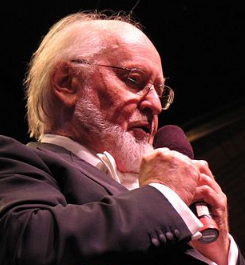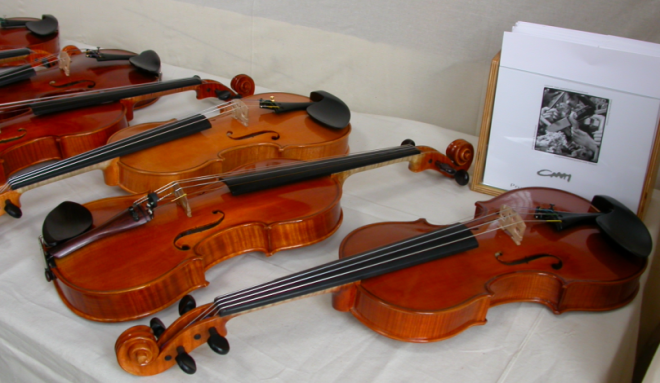Your personal music search space.
Augment your understanding of music.

YMUSIC SEARCH ENGINE
______________________________________________________________________________

MUSIC IN ALL ITS STATES: WONDERFUL MUSIC STORIES
From the composer to the listener, from psychology to spirituality, from art to science, get insights on each field of music, learning about craft or history, about human behavior or consciousness. A place is also given to ethical questions.
MUSICAL CULTURE IN ITS VARIOUS ASPECTS
John Williams

Independently of any music genre or composer, know more about the sounds that are the basis of musical compositions! Try the YMusic search engine, your free personal assistant (it includes musical criteria to select music) and discern which are the styles of sounds you love the most!
Some practices and attitudes
Film composer John Williams said that, beginning to write a score for a movie, he starts by writing the ending credits. Then he takes what he finds more fruitful?, as he says, in that finale, and he develops that material to write the theme and he takes groups of notes coming from the finale to insert them into new pieces that constitute the rest of the score. The time he has to compose a whole score for a movie varies. For example it can be 12 weeks.
Is it necessary, for the composer, to watch a movie from the beginning to the end before composing the score? No, and it is often not even possible, as the score must be ready for the premiere of the movie. The composer reads the script, meets the cast and may obtain some scenes of the movie to advance. In that case, how does a specific movie bring something that the composer can express, at the musical level? It is all a question of the characters that are drawn by the script. Some lines may be appealing, refreshing, provocative, and so on, inspiring and moving the composer. The first chords and melodies are written, then reshaped in order to form a complete orchestral work.
Following the masters
What does a composer choose to write music for movies? Once music composers have played music in a group and studied orchestral music in a school of music, they learn alongside composers in locations like Hollywood, in places where music for movies is created: they arrange and conduct the scores written by the masters for orchestras. When they begin to write themselves, they discuss the scripts with film directors, at least for the main scenes of the movies, in order to give a good rendition of the atmosphere.
Film music is written to evoke emotions amongst listeners: fear, fervor, joy, happiness, etc. Each situation may be depicted in music by using a specific technique or instrument. For example, the use of choirs may easily create an atmosphere that is linked to the sacred sphere and is for instance particularly convenient for science fiction movies, where fights between the forces of good and evil are frequent.
The main musical theme in a movie actually advertises it. It is for example the case for ‘Chrissie’s Death’ in ‘Jaws’, still famous for having inspired terror on both the large and small screens: here the music announces the attack of a shark that is starting to lurk around two reckless friends swimming in the sea. The music being perfectly adapted to the visual scene, anguish was ensured, and so was success for the producers of the film.

How do music composers write screen music?

Beyond any musical instrument or style, know more about sounds created by music lovers! Try YMusic, your free personal assistant (it includes musical criteria to select music) and determine which types of sounds correspond to your inner self!
Musicians and their instruments: mystical love?
Doing as loving
Let us think for a minute about rock guitarists or classical violinists: who are they? Listening to some of them when they execute a musical performance, be it at home or in a concert hall, we are inclined to say that they are their instrument. It is as simple as that. Their virtuosity blurs the difference between these performers and their instrument. That type of phenomenon is not new: during the 19th century, violonist Niccolò Paganini literally made his bow and his violin physical extensions of his body.
Paganini’s violin technique was so extraordinary that some traders who were violin owners refused to take their instrument back once he had touched it. A sample of that technique can be heard in music he composed, like the Caprices. Actually, Paganini owned several exceptional violins, and his compositions for the violin were so imaginative that they contributed to the expansion of the timbre of the instrument. So, it is not difficult to understand that love is actually a weak word to describe what a personality like Paganini felt for his instrument.
Feeling loved or unloved
Some musicians talk about their instruments in images that evoke the idea of the instrument being an extension of their own bodies, and other ones use images that are in a sense connected, talking about instruments as if they were their lover. A viola da gamba performer once recounted that one day, he felt unloved, the viola taking time to warm up. That familiar way of speaking, reflecting a passionate relationship with a musical instrument, is more common amongst popular musicians. It is also talking about how an instrument can be incorporated into the being of the musician.
Liszt melted the piano into his body, going further than Paganini himself and stunning audiences, taking them into a sort of musical ecstasy, expecially the female members of his audiences. That is why a word, Lisztomania, was created to describe a nearly pathological state which listeners experienced during Liszt’s concerts. It was written that Liszt was not only playing the piano, but also the bodies and the souls of his listeners. And that is why he actually became the creator of that strange reality: fandom. Later, rock guitarist Jimi Hendrix, described as the greatest instrumentalist in the history of rock music, expanded the range of the electric guitar and even its vocabulary, creating a unique style that was later imitated by others. He wrote for instance ‘The Wind cries Mary’ and ‘Fire’, that was later covered by U2. Without being so extreme, other composers of popular music showed their love for their instrument in writing: Billy Joel wrote ‘Piano Man’ and Mike Oldfield ‘Piano 248’;Radiohead published ‘Anyone can play guitar’.
Can anyone play guitar? Does everyone want to play guitar? At least, a vast number of people want to listen to pieces of guitar music showing some technique and, more generally, to beautiful music.

Know more about the fundamental aspects of music composition and become a musical critic for yourself! Try the YMusic search engine, your free personal assistant (it includes musical criteria to select music) and discover why, at the musical level, you like specific pieces of music more than other ones!
Musical facts reread
What is music criticism? It is generally defined as a branch of musical aesthetics that is now more related to documented reports on musical performances than to value judgements applied to the intrinsic beauty of a musical work. The first critical references to music are found in the writings of Plato and later in the work of music theorists from the Middle Ages. Yet these were generally deprecating judgments related to performers or styles, without sufficient argumentation. Modern music criticism developed in Europe during the middle of the 18th century and, until the end of that century, critics began to publish their reviews in academic journals founded by composers and also in newspapers. Today, everyone can easily publish musical reviews on the internet, be it on a professional or amateur basis.
But how do some listeners become critics? Some of them, when they are very little children, see music as most listeners will continue to see it later: as a source of thrill and as a way to heal themselves when it is necessary. For them, music quickly made the world a less frightening place. They may play in a musical group and then, if they choose to become writers, they naturally link their love for music and their skills.
What do they want when they become musical critics? First of all, they want to understand music. Often, they begin to write during childhood. Knowing something about music and knowing how to write, they begin to deliver reviews, trying to develop a personality in their writing. They sometimes develop skills in the field of storytelling. Anyhow, they describe what they hear and what they are listening to. What does this mean? That a musical review always relies on what the critic perceived: their aesthetic judgments are based on a personal sensibility. Yet reviews are also based on facts, be it the content of a record or what happened at the concert.
Expressing a personal sensibility
That question of personal sensibility is central, when it comes to criticism. It is related to the question of authority. The music critic has less authority than yesterday. Why? Because music listeners can easily find numerous papers written by music critics online. Also, the quantity of available music is now absolutely huge and music listeners have, generally, more critical skills than some decades ago. Personal sensibility and aesthetic judgment being linked, the music critic will have an interest in establishing a circle of people who share that same sensibility.
When listeners do not like or understand something, they may say so. So the critic is authorized to do the same, sometimes: when it delivers interesting feedback to composers and performers. Even great performers, sometimes, do not always appreciate all composers or all the works of a particular composer. They are not always openly critical, but they will not care about what they do not like. For instance, well-known performer Glenn Gould did not care about the later pieces written by Mozart. So, criticism always contains a degree of subjectivity. However, well constructed, it can help listeners to become more familiar with the structure of a musical piece.
How do music lovers become musical critics?
Discover many good music composers and performers that you do not know yet and, also, know more about why you love the ones you have already listened to! Try the YMusic search engine, your free personal assistant (it includes musical criteria to select music) and let music entertain you!
From one musical genre to another one
Classical performers sometimes like to listen to musical genres that are not linked to their daily practice. For instance, a violonist explained that she is interested in heavy metal groups and that she had already played some of their pieces of music on her own instrument. Subgenres of metal like trash sound interesting to her ears because it is heavily influenced by classical music and sometimes inspired by sophisticated classical compositions. As a performer, she is strictly classical, but as a listener, she has eclectic tastes, and she uses these other listening tastes as a way to share her love of classical music with people that know she loves other genres.
That kind of musician is not only a musician to develop personal potential or serve art, but also to serve humankind in the way that they can best because music is the talent that they have got. They think that people can just appreciate the idea that they will play something for them, doing their best. In fact, listeners are generally predisposed to enjoy the experience of a live setting: they bought tickets and they spent time getting to the venue. In one word, they are on the side of the musicians. Musicians transcend the worry they have about whether or not they will be able to translate their desire for a life in music into one that is successful at the financial level.
Being proud of ‘simply’ being good
A lot of performers want to be perfect at something. Yet it happens that other ones are ‘only’ good in general, having worked hard to overcome some point which is very difficult for them. That point will be different for each musician. For example, it can be the execution of staccato. Some performers never count how many hours they practice during a day, as practice runs through their whole life. They just have to be more organized when they become parents for instance, calling nannies for travelling musicians when it is necessary or combining their own schedule with that of their spouse. They are determined to play to an audience not only for personal development or to serve music, but also to serve human mankind, because music is the talent that allows them to do so.
On the other hand, many music listeners still have the desire to know a musical genre perfectly. But others just want to have fun, when they listen to music. Nobody is right, nobody is wrong: it is not about being right or wrong. Yet perhaps it is about feeling at ease with music and the fact that music can continue to be entertaining, both for performers and listeners.
How can music performers and listeners think out of the box?

Know more about the concepts music composers used and use to create music! Try the YMusic search engine, your free personal assistant (it includes musical criteria to select music) and discern various elements of musical structures!
The passion of music analysts for musical structures
What are the different fields covered by musical theory?
Music analysts sometimes ask in a provocative manner if they should forget about musical forms. Why? It is questioning an entire discipline: their own one, as being attentive to musical structures is a main aspect of their profession. Actually, they may feel uneasy when, in their own discipline, they are confronted by peers who are tempted by formalism. The activities of theorizing about music are generally related to those of analysis; however, if the two disciplines of history of music theory and music analysis are related, they present distinct elements, both in terms of systems and practices.
When it comes to theory, researchers mention the theory of musical systems, which studies notions like modality, tonality, etc. They also distinguish the theory of musical forms like sonata form. Then there is the theory of musical processes, which supposes mathematical developments. For its part, the genre theory helps for instance to see how a symphony is different from a symphonic poem. They also mention the theory of musical meanings: there, music semiology, topics theory and all questions related to musical narratives can be mentioned. Finally there are theories of musical cognition. All these parts of musical theory find objects of study in standard musical repertoires.
What is the novelty brought by musical analysis to music studies?
Musical theory has strong backgrounds, be it in the field of mathematics or human science. On the other hand, musical analysis is more immediate: it concerns, rather, the investigation of designing structures and processes in musical works themselves or even in compositions that are not finished yet. Analysis is applied theory, it gives an explanation of music through the application of theory. Analysis has thus practical targets and is often linked to unique musical productions. It is more detached from the various contexts of musical history than musical theory is. Its primary target is to demonstrate the unity of a musical work, discerning a kind of organic life in it: the analyst observes a specific piece, trying to determine what constitutes its essence.
Through that concept of musical work, which has developed over the last 200 years, the music analyst treats music as a self-contained object which can be analyzed like a natural phenomenon: music can be valued for its own sake. This way of considering music slowly emerged from the music produced at the time of Beethoven and also in 19th century organicism, which was a doctrine saying that everything in nature is part of an organic whole or based on an organic structure. Also, from that time, music was increasingly seen as a reflection of self-consciousness. That last tendency is very popular today and that is one reason why music analysis is still relevant.
The passion of music analysts for musical structures